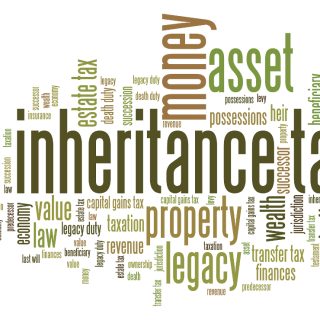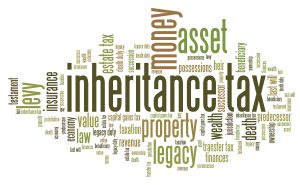Alley Eugenicos, GDL student at the City Law School has managed to squeeze in this interview with City alumni, Laurent Sykes QC amongst her revision and exams. No-one will ever say tax is boring again!

Alumni Interview: Laurent Sykes QC
Laurent Sykes QC is a barrister at Gray’s Inn Tax Chambers, with a beautifully situated office in the heart of financial London. He trained as a chartered accountant then as a solicitor before coming to the Bar and took silk after just over 8 years’ call in January. Other than being multi-lingual and, family legend has it, a distant relative of Admiral Nelson, Mr Sykes QC kindly shared some titbits of advice and perspective as an alumnus of the GDL at City University.
What advice would you give to a GDL student at City seeking to go to the Bar?
I would view tenancy as equivalent to a marriage and, by the same token, pupillage as equivalent to an engagement. Very few people will get engaged without having formed a rapport with their fiancee first and therefore, mini-pupillages to those sets you intend to apply to are more than advisable. It is surprising how few people seem to realise this. Quite aside from anything else you will get a better idea of what a particular set is looking for which will be helpful to you in the interview. We like many others offer very generous sponsoring of mini-pupillages so it is a ‘no brainer’ to apply and do one if you are accepted. The Bar Pro Bono Unit and FRU are also good ways of gaining practical experience that will stand out on a pupillage application form. Having had a previous career can give you a big advantage; it gives you a gravitas and understanding of humanity that clients and instructing solicitors may find attractive. As a set we keep an open mind as to who we offer a pupillage to. There are many ways to shine.
How is the current debate on tax avoidance reflected in what you see in practice?
Members of Gray’s Inn Tax Chambers work both for HMRC and the taxpayer. I personally act mainly for the taxpayer and I certainly see many instances where HMRC demand money (or indeed have taken money), which is not due. This is why some appeals against tax assessments succeed. I do not, like many people do these days, assume that HMRC are always correct. I think it is important to remember that there are two sides to every story. With respect to tax avoidance, I think this typifies a fundamental point about our legal system as much as our tax system, which is, that it is complex. Its complexity means that good advice and/or representation will make a difference to the outcome. This is why some barristers earn more than others. That there is no equality of arms is, in one sense, unfair and one sees this in particular when doing work for the Bar Pro Bono Unit where the individual has not been represented before – things can go badly wrong without representation. I don’t have a solution except that we can temper the unfairness by doing volunteer work (which is not to say that government should not also do its part). I also think that Judges must be alive to the imbalance. I have seen litigants in person being taken advantage of, which I find very troubling.
The tax system is part of this complex legal system. It too is complex, perhaps more than the rest, given that the meanings of words in tax statute carry huge financial implications, and therefore the law is constantly being changed, such is the pressure on the statute. All this means that again good advice and/or representation will make a big difference. This is part of the background to the Google/Amazon tax-avoidance phenomenon. That scope for imbalance is allegedly reflected in HMRC being at a disadvantage in those cases. However, as far as most people are concerned, it will not be the case that the taxpayer has the advantage in terms of financial resources. Sometimes, quite the opposite is true.
What is your most memorable case?
Defending the taxpayer’s right to have his appeal heard against an assessment to £2.7m before enforcement action was taken which would have led to his bankruptcy. HMRC said he should pay the tax before his appeal was heard because his case was hopeless. In fact, the High Court agreed his appeal should be heard first, and, when the appeal was heard the Tribunal, agreed that no tax was payable. Things could have gone very differently with no representation.
What is a typical tax problem?
Tax law ‘floats’ above the general law, making use of general legal concepts as well as tax specific ones, and so, in applying a tax statute, one will often be looking at general law concepts which the tax statute makes use of. To give some examples of recent issues: is this an interest in land or a purely personal right, is this contract that has been varied the same contract or a new contract, etc. In addition, tax issues will often take you into other areas of law beyond the interpretation of tax statutes, e.g. setting aside a transfer into trust in the Chancery Division because it causes disastrous tax consequences. Or, judicial review in the administrative court against HMRC because they have breached their statutory obligations is another example. You may also deal with professional negligence claims against advisors. I have also litigated a contractual dispute in the Commercial Court with respect to the meaning of a tax deed where the points were mostly points of contract law.
Another point to bear in mind is that the rules may seem boring but one could say the same about the rules of chess. It is playing the game which is where the fun and interest lies, not in learning the rules. Many people realise this about tax when it is too late and one sometimes hears other practitioners regret they did not do tax, given in particular the amount of pure law involved. Where I trained as a solicitor trainees soon realised that the tax department was very much a desirable department to get into on qualification. Of course getting into the tax bar is also competitive but being able to demonstrate a genuine interest as well as academic ability will carry you a long way.


